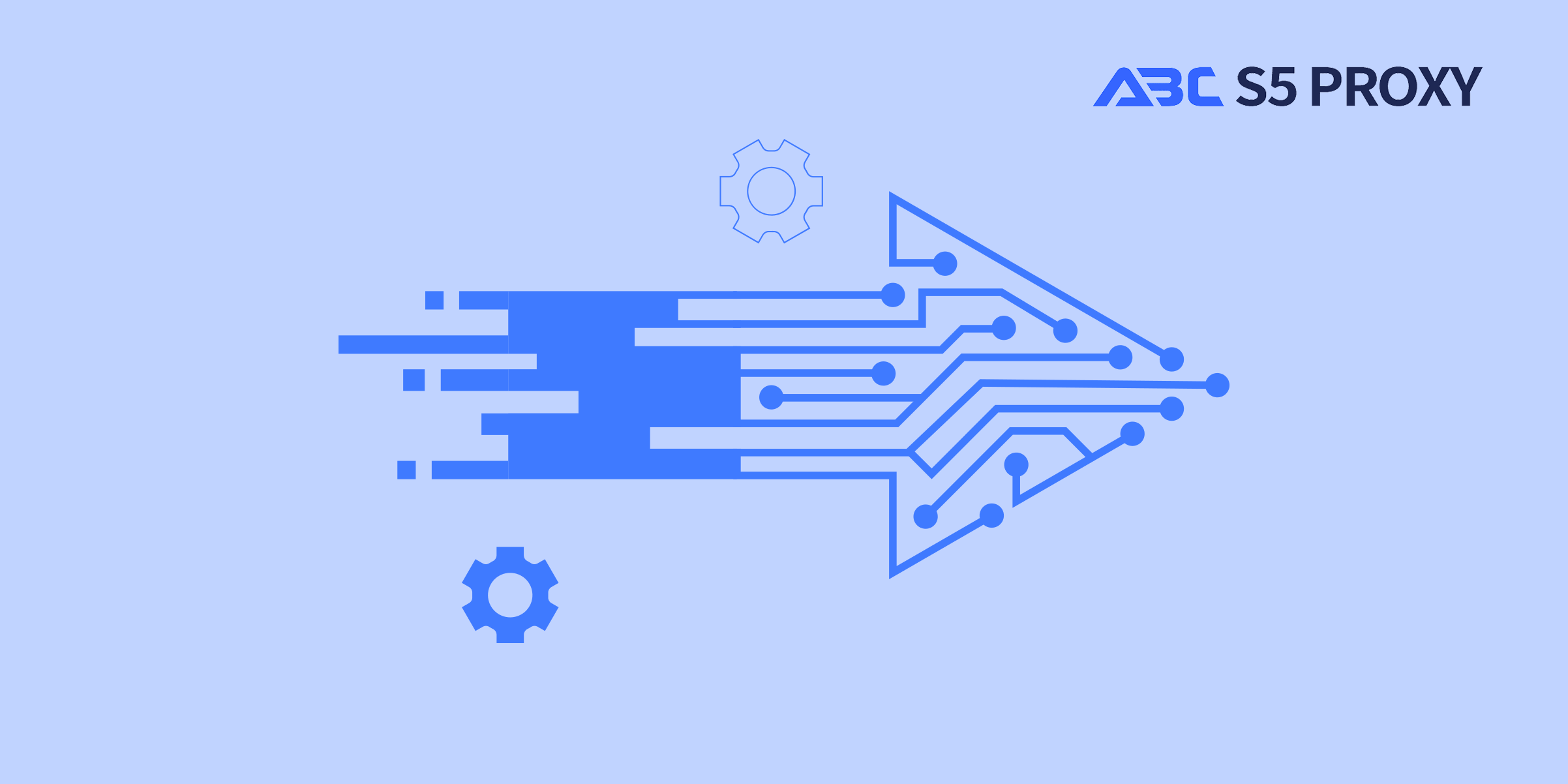Residential Proxies
Allowlisted 200M+ IPs from real ISP. Managed/obtained proxies via dashboard.

Proxies Services
Residential Proxies
Allowlisted 200M+ IPs from real ISP. Managed/obtained proxies via dashboard.
Residential (Socks5) Proxies
Over 200 million real IPs in 190+ locations,
Unlimited Residential Proxies
Unlimited use of IP and Traffic, AI Intelligent Rotating Residential Proxies
Static Residential proxies
Long-lasting dedicated proxy, non-rotating residential proxy
Dedicated Datacenter Proxies
Use stable, fast, and furious 700K+ datacenter IPs worldwide.
Mobile Proxies
Dive into a 10M+ ethically-sourced mobile lP pool with 160+ locations and 700+ ASNs.
Scrapers
Collection of public structured data from all websites
Proxies
Residential Proxies
Allowlisted 200M+ IPs from real ISP. Managed/obtained proxies via dashboard.
Starts from
$0.6/ GB
Residential (Socks5) Proxies
Over 200 million real IPs in 190+ locations,
Starts from
$0.03/ IP
Unlimited Residential Proxies
Unlimited use of IP and Traffic, AI Intelligent Rotating Residential Proxies
Starts from
$1816/ MONTH
Rotating ISP Proxies
ABCProxy's Rotating ISP Proxies guarantee long session time.
Starts from
$0.4/ GB
Static Residential proxies
Long-lasting dedicated proxy, non-rotating residential proxy
Starts from
$4.5/MONTH
Dedicated Datacenter Proxies
Use stable, fast, and furious 700K+ datacenter IPs worldwide.
Starts from
$4.5/MONTH
Mobile Proxies
Allowlisted 200M+ IPs from real ISP. Managed/obtained proxies via dashboard.
Starts from
$1.2/ GB
Scrapers
Web Unblocker
Simulate real user behavior to over-come anti-bot detection
Starts from
$1.2/GB
Serp API
Get real-time search engine data With SERP API
Starts from
$0.3/1K results
Scraping Browser
Scale scraping browsers with built-inunblocking and hosting
Starts from
$2.5/GB
Documentation
All features, parameters, and integration details, backed by code samples in every coding language.
TOOLS
Resources
Addons
ABCProxy Extension for Chrome
Free Chrome proxy manager extension that works with any proxy provider.
ABCProxy Extension for Firefox
Free Firefox proxy manager extension that works with any proxy provider.
Proxy Manager
Manage all proxies using APM interface
Proxy Checker
Free online proxy checker analyzing health, type, and country.
Proxies
AI Developmen
Acquire large-scale multimodal web data for machine learning
Sales & E-commerce
Collect pricing data on every product acrossthe web to get and maintain a competitive advantage
Threat Intelligence
Get real-time data and access multiple geo-locations around the world.
Copyright Infringement Monitoring
Find and gather all the evidence to stop copyright infringements.
Social Media for Marketing
Dominate your industry space on social media with smarter campaigns, anticipate the next big trends
Travel Fare Aggregation
Get real-time data and access multiple geo-locations around the world.
By Use Case
English
繁體中文
Русский
Indonesia
Português
Español
بالعربية

Title: Exploring the Differences Between HTTP and SOCKS5 Proxies
In the realm of internet privacy and security, proxies play a crucial role in keeping our online activities anonymous and protected. Two common types of proxies that are widely used are HTTP and SOCKS5 proxies. While both serve the purpose of masking the user's IP address, they differ in several key aspects. In this blog post, we will delve into the distinctions between HTTP and SOCKS5 proxies to gain a better understanding of how they work and when to use them.
HTTP (Hypertext Transfer Protocol) proxies are primarily designed for web browsing and are commonly used for accessing websites anonymously. These proxies operate at the application layer of the OSI model, meaning they can only handle HTTP traffic. When you connect to an HTTP proxy server, your web traffic is rerouted through the proxy server before reaching the destination website. This process helps hide your IP address from the website you're visiting.
One of the main advantages of HTTP proxies is their ease of use and compatibility with most web browsers. They are suitable for users who need basic anonymity for web browsing or accessing geo-blocked content. However, HTTP proxies may not be the best choice for activities that require more secure and versatile connections.
On the other hand, SOCKS5 proxies are more versatile and can handle various types of internet traffic, including HTTP, FTP, and torrenting. Unlike HTTP proxies, SOCKS5 proxies operate at the transport layer of the OSI model, providing a more comprehensive level of anonymity and security. SOCKS5 proxies also offer authentication and encryption options for added protection.
One key feature of SOCKS5 proxies is their support for UDP traffic, making them ideal for activities like online gaming and video streaming that require real-time data transmission. Additionally, SOCKS5 proxies have the ability to handle more complex networking scenarios and provide better performance compared to HTTP proxies.
1. Protocol Support: HTTP proxies are limited to handling HTTP traffic, while SOCKS5 proxies can handle various protocols, including UDP.
2. Security: SOCKS5 proxies offer better security features such as authentication and encryption, making them more suitable for sensitive activities.
3. Performance: SOCKS5 proxies typically provide better performance and reliability, especially for applications that require real-time data transmission.
4. Compatibility: HTTP proxies are more commonly supported by web browsers, while SOCKS5 proxies may require additional configuration for certain applications.
- Use an HTTP proxy when you need basic anonymity for web browsing or accessing geo-blocked content.
- Choose a SOCKS5 proxy for activities that require more security, versatility, and performance, such as torrenting, online gaming, or video streaming.
In conclusion, both HTTP and SOCKS5 proxies serve the purpose of masking your IP address and providing anonymity online. The choice between the two depends on your specific needs and the level of security and performance required for your internet activities. Understanding the differences outlined in this blog post can help you make an informed decision when selecting the right proxy for your purposes.
Featured Posts
Popular Products
Residential Proxies
Allowlisted 200M+ IPs from real ISP. Managed/obtained proxies via dashboard.
Residential (Socks5) Proxies
Over 200 million real IPs in 190+ locations,
Unlimited Residential Proxies
Use stable, fast, and furious 700K+ datacenter IPs worldwide.
Rotating ISP Proxies
ABCProxy's Rotating ISP Proxies guarantee long session time.
Residential (Socks5) Proxies
Long-lasting dedicated proxy, non-rotating residential proxy
Dedicated Datacenter Proxies
Use stable, fast, and furious 700K+ datacenter IPs worldwide.
Web Unblocker
View content as a real user with the help of ABC proxy's dynamic fingerprinting technology.
Related articles

Maximizing Web Scraping Success: Java vs. Python with ABCproxy Innovations in 2025
When it comes to web scraping, deciding between Java or Python is crucial. Discover how ABCproxy excels in empowering both languages for web scraping in 2025. Explore the possibilities and make an informed choice!

Revolutionizing Web Scraping: AI and Clean Proxies Outsmarting Captcha Blocks
Discover how AI and clean proxies are revolutionizing web scraping beyond Captcha blocking. Learn about the latest advancements in data gathering techniques.